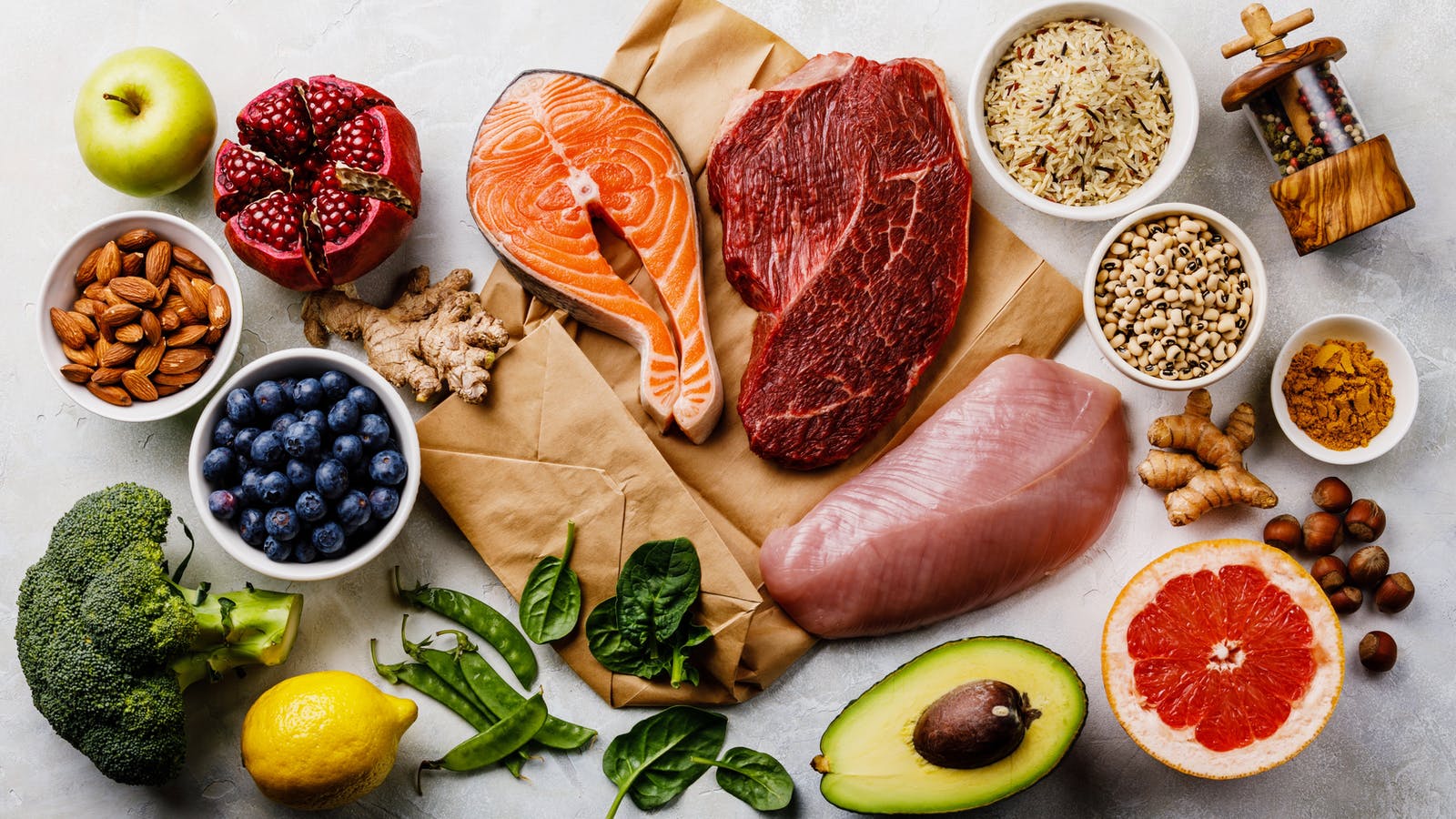Every living organism relies on nutrients—the substances in food that fuel our bodies, support growth, repair tissues, and keep internal processes running smoothly. These vital components are broken down during digestion and absorbed in their simplest forms to be used in everything from cell regeneration to energy production. Broadly speaking, nutrients fall into two essential categories: macronutrients and micronutrients. While macronutrients serve as our primary energy sources, micronutrients play critical supporting roles in maintaining health and enabling bodily functions.
Let’s dive deeper into how these nutrient types function and why each one matters.
Categories of Nutrients: Macronutrients and Micronutrients
Nutrients are typically grouped into two types:
-
Macronutrients
-
Micronutrients
Macronutrients are needed in large quantities and provide the energy required for everyday functions like breathing, moving, thinking, and growing. They include carbohydrates, proteins, and fats—each playing a distinct and essential role in bodily performance.
On the other hand, micronutrients—which consist of vitamins and minerals—are needed in smaller amounts but are just as crucial. They help regulate metabolism, support immune function, and contribute to the maintenance of bones, blood, and organs. Think of them as the support team that ensures the energy provided by macronutrients is used efficiently.
While both types can be acquired from our environment through food and supplements, a balanced intake is necessary to keep the body functioning at its best.
Essential Nutrients Your Body Needs
Some nutrients cannot be produced by the body and must be obtained through food. These play a key role in health maintenance and disease prevention. Let’s break down the key players:
Carbohydrates
Carbohydrates are the body’s go-to fuel. They come in three main forms: sugars, starches, and fiber. While sugary and starchy carbs provide quick energy, fiber aids digestion and helps maintain a feeling of fullness. Despite some dietary trends that demonize carbs, they are essential—especially when sourced from whole grains, fruits, and vegetables.
Calcium
Best known for building and maintaining strong bones and teeth, calcium also supports the proper function of nerves, muscles, and the heart. Foods like dairy products (milk, yogurt), tofu, canned fish, and leafy greens are all calcium-rich. A long-term deficiency may lead to osteoporosis, especially in older adults.
Cholesterol
While often associated with negative health outcomes, cholesterol actually plays a vital role in forming cell membranes, hormones, and vitamin D. Your body produces it naturally, but it can also be consumed through foods like cheese, milk, meat, and fish. Balance is key—excessive cholesterol intake, particularly from processed foods, can raise the risk of heart disease.
Fats
Fats are a dense energy source, providing 9 calories per gram—more than double that of proteins or carbohydrates. They serve as insulation for organs, support brain function, and are essential for absorbing fat-soluble vitamins like A, D, E, and K. Common dietary fats are found in oils, spreads, nuts, meats, and even pastries. The trick is to choose healthy fats (like unsaturated and omega-3s) and avoid harmful trans fats.
Iron
Iron is indispensable for the production of hemoglobin, the protein in red blood cells that carries oxygen from your lungs to every cell in your body. Without enough iron, the body struggles with fatigue and weakness. Excellent sources include spinach, legumes, red meat, and fortified cereals.
Protein
Composed of amino acids, proteins are the building blocks of muscle, skin, enzymes, and hormones. They’re essential for growth, tissue repair, and maintaining a strong immune system. Dietary protein can be sourced from both animal-based foods like meat and dairy and plant-based options like beans, lentils, and nuts.
Sodium
Often misunderstood, sodium helps maintain fluid balance and supports nerve and muscle function. It’s naturally present in many foods like milk and vegetables but is also heavily added to processed foods. While some sodium is necessary, excessive intake is linked to high blood pressure and cardiovascular disease.
Key Roles of Nutrients in the Human Body
Each nutrient in our diet performs a set of vital functions that directly impact our physical and mental well-being. They don’t just fill your stomach—they help build, repair, fuel, and protect your body from within. Here’s a breakdown of the essential roles nutrients play:
-
Provide Energy: Macronutrients (carbohydrates, proteins, and fats) are your body’s energy suppliers. They fuel everything from cell production to your daily activities.
-
Repair and Growth: Nutrients like proteins and certain minerals help rebuild tissue, heal wounds, and support the growth of muscles, bones, and organs.
-
Fat-Soluble Vitamin Absorption: Dietary fats are necessary to absorb vitamins A, D, E, and K effectively.
-
Support Structural Health: Nutrients like calcium and vitamin C maintain the strength and integrity of bones, blood vessels, and connective tissue.
-
Synthesize Enzymes and Hormones: Proteins and fats contribute to the production of hormones and enzymes that regulate body systems.
-
Maintain Homeostasis: Proper nutrient balance helps stabilize the body’s internal environment—such as temperature, pH, and hydration.
A deficiency in any of these critical roles can lead to fatigue, developmental problems, or serious illnesses. That’s why diversity in your diet is more than just culinary preference—it’s a necessity.
Vitamins, Minerals, and Proteins: How They Differ
Although these three nutrient types often work together, they each have distinct purposes in supporting human health.
Vitamins
Vitamins are organic compounds that assist in countless metabolic processes. Each vitamin has a unique function:
-
Vitamin A promotes healthy vision and cell growth.
-
B vitamins (like B1, B2, B6, B12) support nerve function, red blood cell formation, and energy metabolism.
-
Vitamin C is a powerful antioxidant that enhances immune defense and aids in collagen production.
-
Vitamin D helps with calcium absorption and bone health.
-
Vitamin E protects cell membranes from oxidative stress.
-
Vitamin K plays a key role in blood clotting and bone strength.
Most vitamins are found naturally in fruits, vegetables, whole grains, dairy, and lean proteins. Because they’re water- or fat-soluble, how your body absorbs and stores them varies—making consistent intake important.
Minerals
Minerals are inorganic elements that contribute to structural and regulatory functions in the body. Unlike vitamins, they come from soil and water and are absorbed by plants or eaten via animals.
Major minerals include:
-
Calcium and Magnesium: critical for bone density and muscle relaxation.
-
Phosphorus: needed for energy production at the cellular level.
-
Iron: essential for oxygen transport in the blood.
-
Zinc, Copper, and Manganese: help enzymes perform vital chemical reactions.
-
Selenium: a trace mineral that defends against cellular damage from toxins.
These minerals are found in a wide variety of foods, including dairy, meat, fish, legumes, and leafy vegetables.
Proteins
Proteins are perhaps the most versatile nutrient group. Beyond building muscle, they serve as structural components of every cell in your body. They also form:
-
Antibodies to fight infection
-
Enzymes that catalyze chemical reactions
-
Hormones that regulate bodily processes
-
Transport molecules, like hemoglobin
What makes protein special is its composition—amino acids. Your body needs 20 different amino acids, 9 of which are essential and must be obtained from food. High-quality protein sources contain all essential amino acids and are typically found in eggs, poultry, dairy, fish, and some plant combinations like rice with beans.
Balancing Macronutrients: Carbohydrates, Fats, and Proteins
To maintain optimal health, your diet should include the right balance of macronutrients—carbohydrates, fats, and proteins. Each one plays a critical role, and when consumed in the right ratios, they support everything from sustained energy to cellular repair.
A general dietary guideline recommends:
-
45–65% of daily calories from carbohydrates
-
20–35% from fats
-
10–35% from proteins
Let’s take a closer look at the function of each:
Carbohydrates
Carbohydrates are the body's primary energy source. Foods like grains, legumes, fruits, and vegetables are rich in complex carbohydrates—starches and fiber—which digest slowly and help maintain blood sugar levels. Simple carbohydrates, like those found in sugary snacks and beverages, offer quick energy but little nutritional value.
Choosing whole, unprocessed carbs provides the most benefit—think brown rice, oats, lentils, and sweet potatoes.
Fats
While often vilified, fats are essential. They help the body absorb certain vitamins, protect your organs, and play a role in hormone production and brain health.
Fats fall into several categories:
-
Unsaturated fats (found in olive oil, avocados, nuts, and fatty fish) support heart health.
-
Saturated fats (from animal products and some oils) are fine in moderation but should be limited.
-
Trans fats, found in many processed foods, are harmful and should be avoided entirely.
Balance and quality are key—your body thrives on the right fats in the right quantities.
Micronutrients and Their Superpowers
While they don’t provide energy directly, micronutrients are like tiny switches and regulators that keep your body’s systems operating efficiently. Here's how they shine:
Vitamins
These organic molecules are involved in nearly every cellular function. Found abundantly in fruits and vegetables, each vitamin plays a specific role:
-
Vitamin A: boosts eye health and skin regeneration.
-
B Vitamins: support energy conversion and brain function.
-
Vitamin C: strengthens immunity and helps heal wounds.
-
Vitamin D: aids in calcium absorption and immune balance.
-
Vitamin E: acts as a cellular shield against free radicals.
-
Vitamin K: crucial for blood clotting and bone metabolism.
Eating a rainbow of produce daily is the best strategy to get your required intake.
Minerals
These are the body’s inorganic nutrients—simple in structure but powerful in function. A few examples:
-
Calcium: needed for bone strength and nerve signaling.
-
Iron: transports oxygen in the blood.
-
Zinc: helps wounds heal and supports immune responses.
-
Magnesium: assists in hundreds of enzyme reactions.
-
Selenium: offers protection against oxidative stress.
Including legumes, seeds, whole grains, leafy greens, dairy, and lean meats in your diet helps meet your mineral needs naturally.
Protein’s Central Role in Human Biology
When most people think of protein, they think of muscles—but its reach is far more extensive. Protein forms the foundational material of:
-
Organs
-
Hair and skin
-
Immune cells (like antibodies)
-
Digestive enzymes
-
Hormones (like insulin)
Your body is constantly breaking down and rebuilding proteins, which is why a steady dietary supply is crucial. Animal products provide complete proteins, while vegetarians and vegans can combine foods like legumes, grains, nuts, and seeds to meet their amino acid needs.
Final Thoughts: Fueling Health Through Nutrients
The human body is a marvel of biology, and nutrients are its fuel, tools, and repair system all at once. Each vitamin, mineral, fat, carbohydrate, and protein works in harmony to support:
-
Growth and repair
-
Metabolism
-
Disease resistance
-
Mental performance
-
Overall vitality
Eating well isn’t about strict rules or eliminating entire food groups—it’s about balance, variety, and quality. When you prioritize whole foods, stay hydrated, and remain mindful of what your body truly needs, you're not just eating—you’re investing in your future health.















